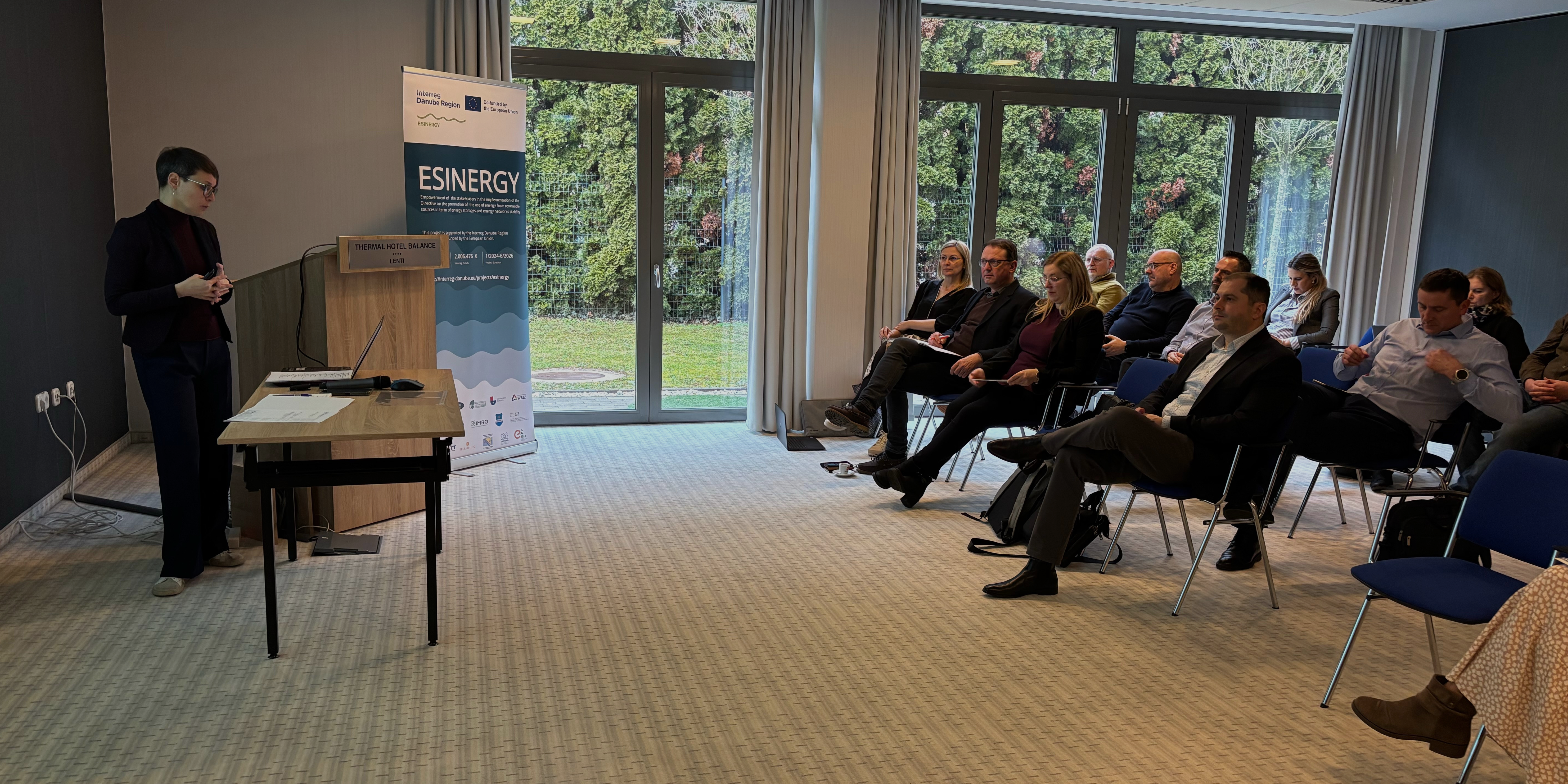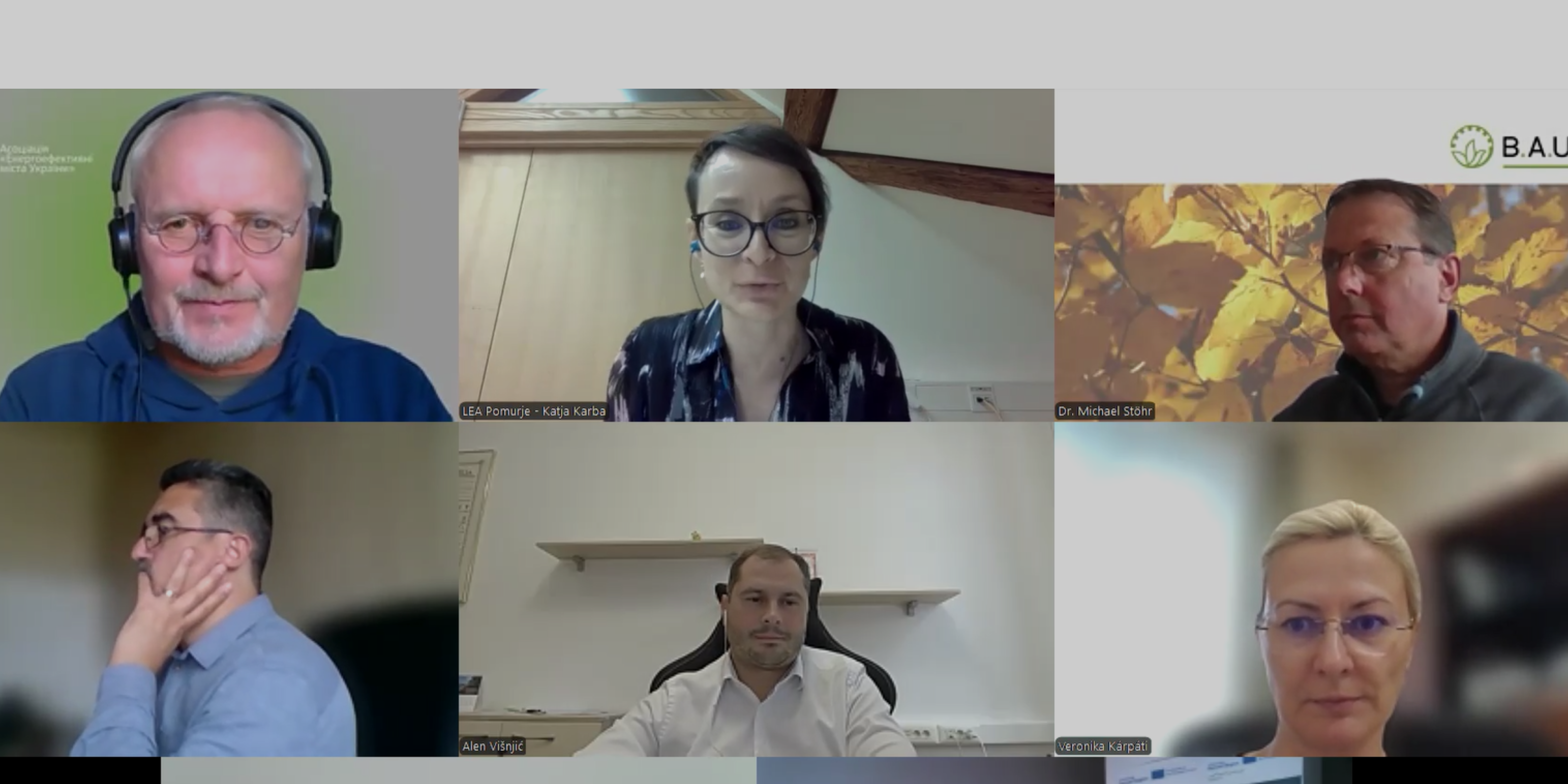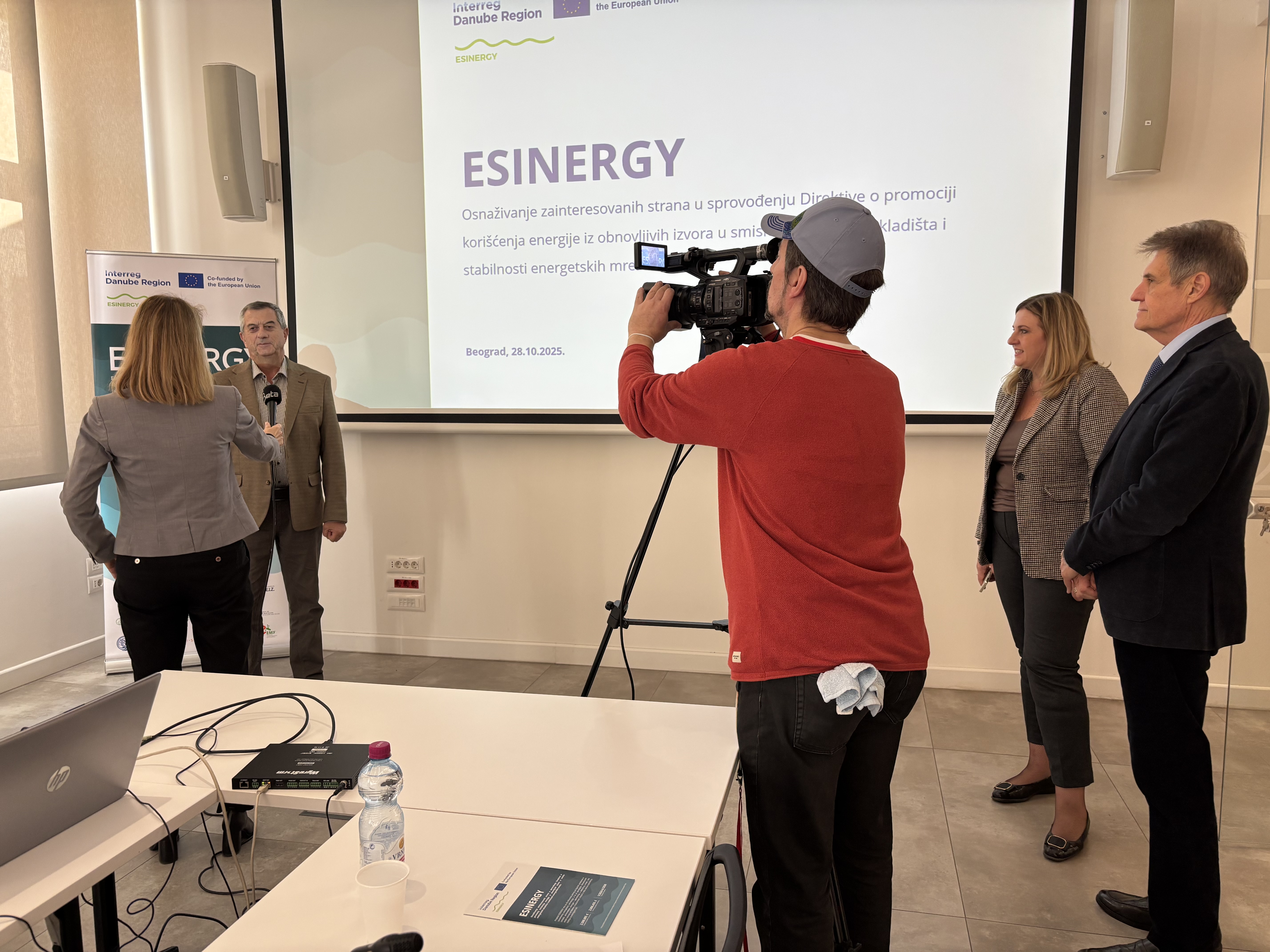
Transnational Master Plan for Smarter Energy Management Presented in Belgrade
Transnational Master Plan for Smarter Energy Management Presented in Belgrade
The Regional Development Agency of Eastern Serbia - RARIS and the Chamber of Commerce and Industry of Serbia, on 28th of October have presented the Transnational Master Plan for Peak Load Reduction and Energy Policy Alignment, a document that harmonizes national energy policies with the EU Directives on Renewable Energy Sources (RES) and the electricity market.
The plan was developed within the European ESINERGY project, implemented within the framework of the Interreg Danube Region Programme, with the goal of improving the implementation of the EU Directive on the promotion of renewable energy use. It places a special focus on energy storage systems and power grid stability.
As explained, the Transnational Master Plan provides practical models for integrating renewable energy sources, increasing the flexibility of the power grid, and engaging small and medium-sized producers and consumers — key actors in achieving the European Green Deal and climate goals by 2030.
Ljubinko Savić, Secretary of the CCIS Association for Energy and Mining, emphasized that the decarbonization of Serbia’s energy sector is one of the key strategic goals by 2050, with energy efficiency and renewable energy sources being the main tools to achieve it.
“In the past few months, in cooperation with the Ministry of Mining and Energy, the Energy Agency, Electric Power Industry of Serbia (EPS), and the Electric Power Industry of Serbia (EPS) and the Electricity Distribution Company of Serbia (ED), we organized 22 workshops across Serbia, attended by over 400 companies and 500 participants, where we discussed ways to reduce energy bills and increase industrial efficiency,” said Savić.
Vladan Jeremić, Director of the Regional Development Agency of Eastern Serbia (RARIS), highlighted the importance of the Transnational Master Plan, as it provides guidelines for Danube region countries on how to tackle challenges arising from renewable energy production.
“Challenges arise when too much energy is produced at certain times and too little at others. This plan offers concrete measures and activities that all countries should consider in their further development of the energy sector,” Jeremić said.
He added that the plan also promotes the concept of energy communities, which will soon become a reality in Serbia, opening up opportunities for new businesses and investments in the field of renewable energy.
“Ultimately, this means a cleaner environment and a better quality of life for all of us,” Jeremić noted.
Dušan Vasiljević, International Expert on Energy Security in the ESINERGY project, stressed that the Master Plan is the result of two years of consultations with experts and institutions from 12 countries of the Danube region.
“In pilot projects carried out in eight countries, various mechanisms were tested to reduce grid overload during periods of high consumption or excessive production from wind and solar power. The results show that it is possible to reduce load by up to 30%,” said Vasiljević.
He pointed out that this approach enables local energy production and consumption.
“The Master Plan provides guidance on how these solutions can be adapted to each country and integrated into national energy systems,” Vasiljević emphasized.
The Forum brought together representatives of state institutions, energy companies, local governments, and the expert community. As part of the event, a Memorandum of Cooperation between Chamber of Commerce and Industry of Serbia and RARIS was signed to further promote this topic.
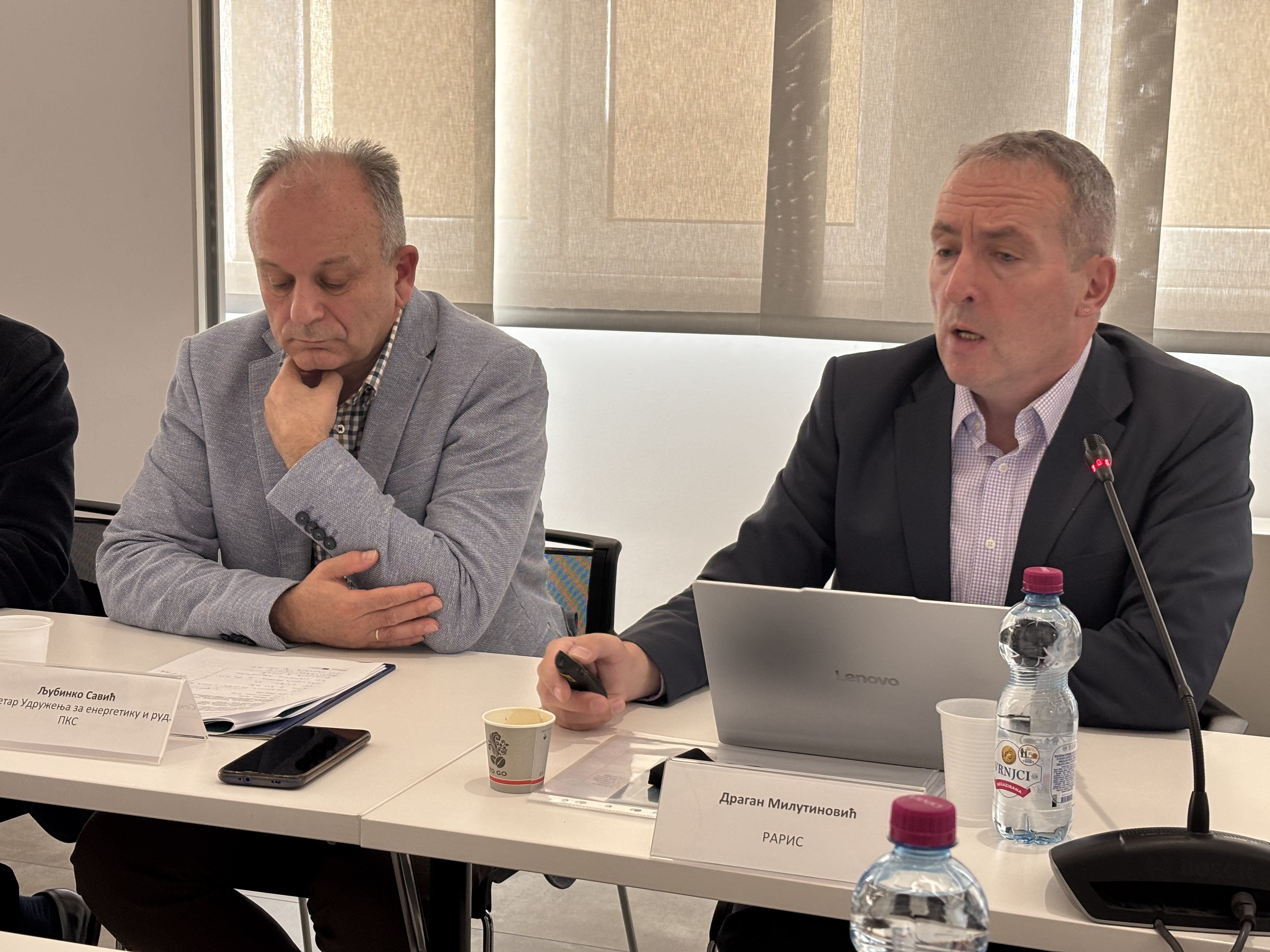
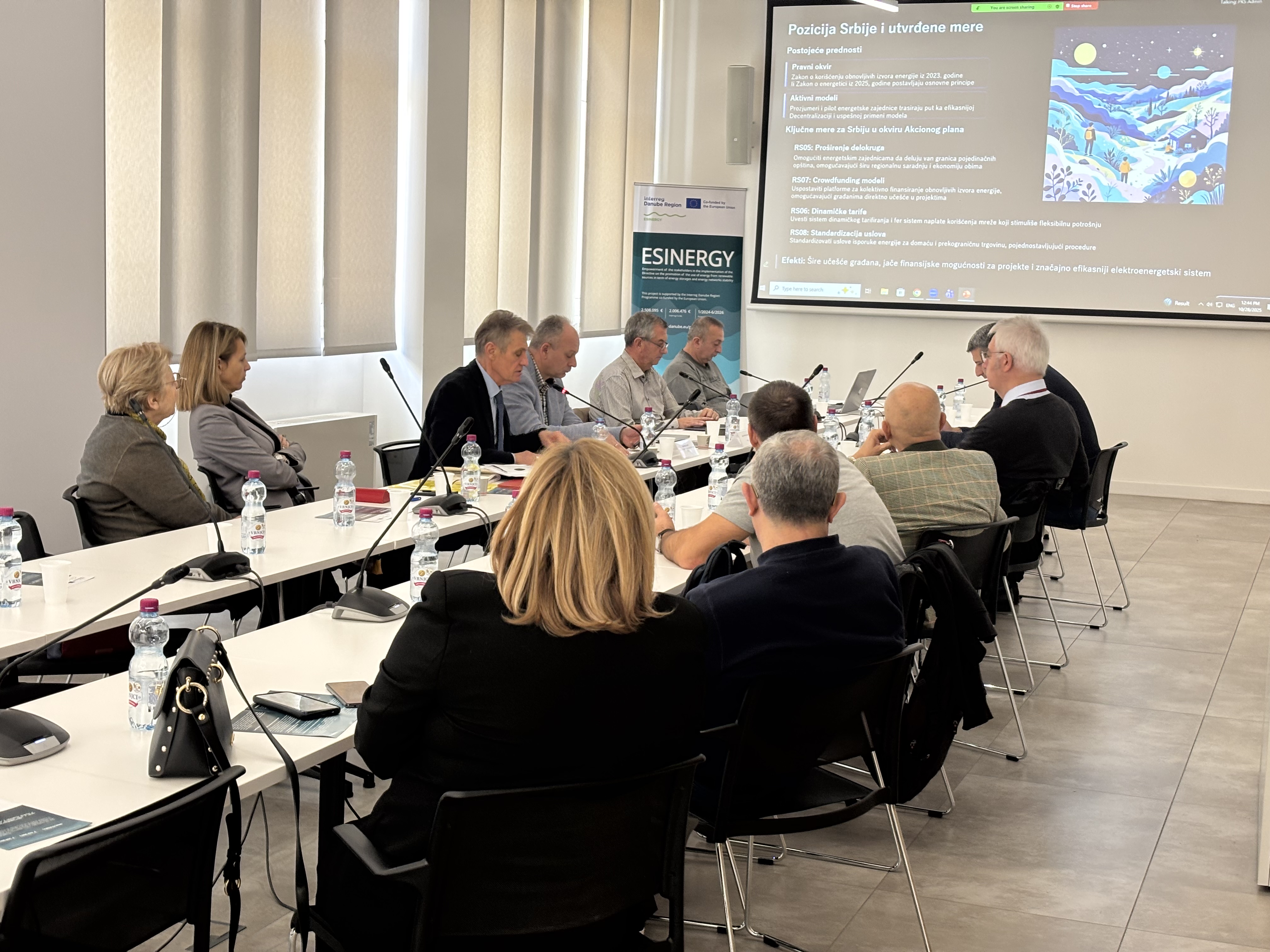
News & Events
Read the most recent updates and explore the upcoming events.

